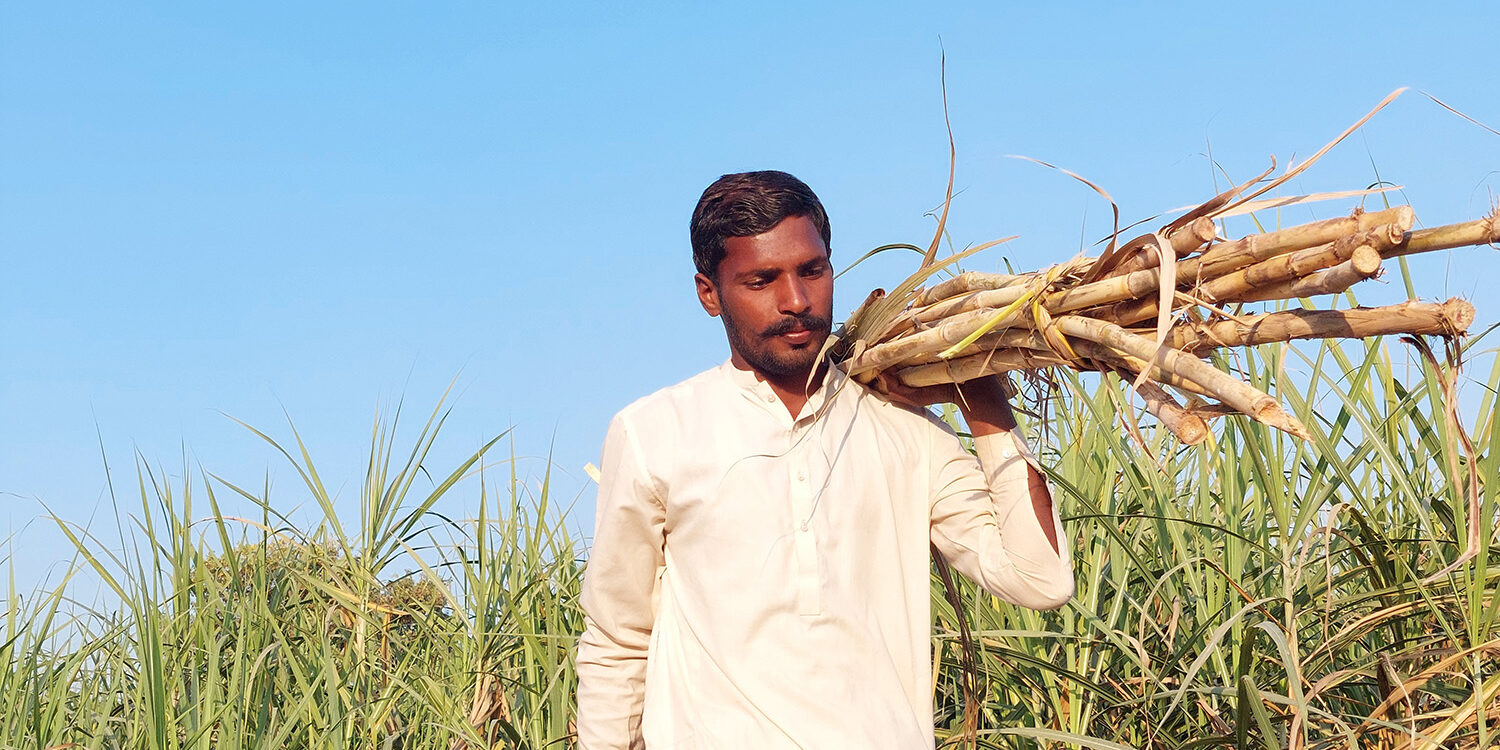
Sustainable sugarcane in Pakistan: Building smallholders’ capacity
Name of the project: Promoting sustainable sugarcane production among smallholders of Pakistan
Call for proposals theme: Innovating sustainability in smallholder sugarcane farming
Project lead: WWF Pakistan
Co-lead: Shakarganj Limited
Grant awarded: £29,252
Project budget: £48,524


WWF Pakistan is the largest independent nature conservation NGO in the country. Its mission is to preserve Pakistan’s biodiversity and natural resources. Through its Food & Markets (F&M) Programme, it is tackling the socio-economic and environmental challenges of agricultural commodities through economically efficient ecological solutions and technologies.
The project is run in partnership with Shakarganj, a producer of refined cane sugar and sugar by-products. Its brand Shakarganj Sugar is one of the leading brands of refined and specialty sugars in the Pakistani retail market.
Purpose of the project
According to the Global Climate Risk Index, Pakistan is the 8th most vulnerable country to climate change. The climate crisis is significantly affecting sugarcane production in the country. For every 1°C temperature increase, the yield of sugarcane decreases by 1% (Afghan, 2013).
Smallholder farmers account for around 64% of sugarcane cultivation in Pakistan and are most vulnerable to climate change impacts.
To address these challenges, WWF Pakistan wants to train sugarcane smallholders to:
- better understand sustainable practices
- enable them to effectively respond to the climate crisis.
The project will enhance resilience of smallholders who have been hit hard by climate change through locally feasible solutions, using the Bonsucro Standards as guiding principles, including decent work. The proposed interventions will also help mitigate the negative impacts of sugarcane farming, such as unsustainable irrigation, excessive use of agrochemicals, and soil degradation. The interventions will improve the working environment for farmers.
Training will also be delivered to the staff of the Agriculture Extension Department of the Government of Punjab.
WWF and Shakarganj have set the following targets by 2024:
- At least 2,000 smallholders have the capacity to adopt sustainable sugarcane production practices on around 3,000 hectares, in line with the Bonsucro Smallholder Production Standard.
- An effective mechanism is in place for the procurement of sustainably produced sugarcane by the local sugar industry to support the project-engaged farmers.
Ultimately, the project has a long-term vision to lay the foundations for Bonsucro certified sugarcane to predominate the Pakistani market by 2030.
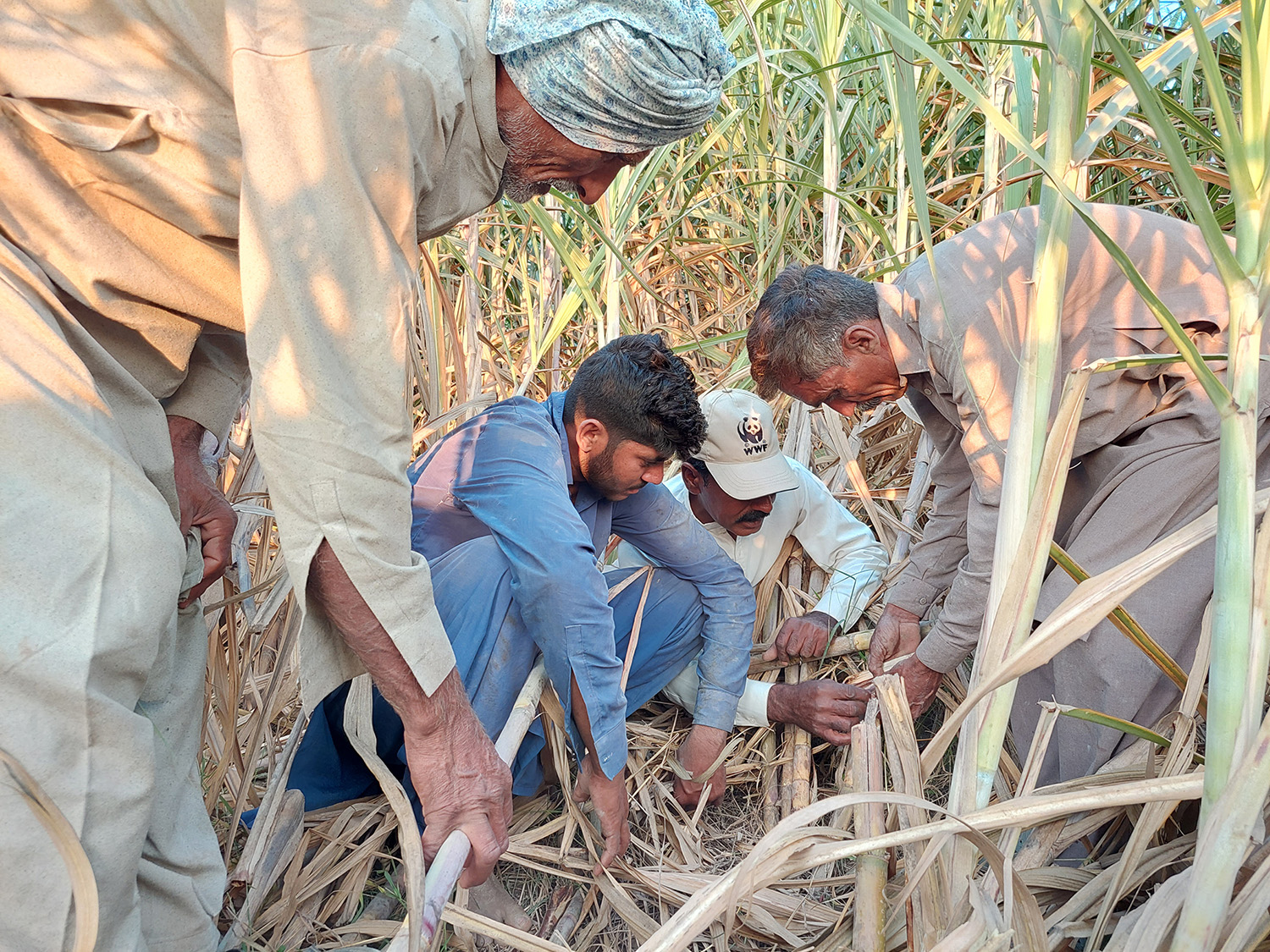
Location
The project will be implemented in rural Jhang district, in the Punjab province.
More than half of its district’s population lives below the poverty line and over 70% is directly engaged in agriculture*; the majority of whom are smallholders and farm workers.
With five sugar mills, sugarcane is a popular cash crop in the district. Most smallholder farmers grow sugarcane on two to three hectares of land.
*Source: Government of Punjab, 2019
Why this project?
The Bonsucro Impact Fund supports collaborative, scalable and innovative projects that accelerate sustainable sugarcane production.
Scalability
This project will be scalable through strong partnership with farmers, who will be able to train other farmers, creating a virtuous training chain.
Learnings from the project will also be presented at the forum of the Pakistan Sugar Mills Association (PSMA) for possible replication.
As well as encouraging open dialogue about decent work issues, the project will emphasise the importance of local government support is important for collective action and scalability.
Innovation
The training will use an entirely different approach from conventional advisory services and be based on learning-by-doing.
The farmers will be organised into small groups and carry field experiments to solve complex issues, record observations, analyse, and interpret the results and implement these findings. This will build their confidence and will enable them to make informed site-specific decisions in the wake of the changing climate. It will have a long-lasting impact as these farmers will maintain these practices after the project closes.
The project will also help smallholders improve their relationships with mills, in favour of better prices and payment terms.
Sustainability
The project will undertake complementary interventions contributing for a holistic project rather than ad-hoc interventions. It will pave the way for farmers and mills
towards achieving Bonsucro certification, which will deliver long-term socio-economic and environmental impact.
Through its strong relationship with farmers, its research institute, and its influence, Shakarganj will maintain the results of the project and expand to include its entire sourcing area. It will also enable the company to prepare for formal Bonsucro certification, which will support its image on sustainable sourcing at the national and international levels.
Shakarganj’s research institute (SSRI) will conduct field research and provide new sugarcane varieties to farmers. This will help them to reduce expenses and positively impact their income.
Continued collaboration with the Agriculture Extension Department, Punjab (AED) will ensure institutional support for the sustainability in the future, beyond the project terms.
Expected outcomes
- Stronger smallholder resilience to climate change and better mitigation of the negative impacts of sugarcane production, through improved practices in line with Bonsucro’s Standard for Smallholders.
- Economic benefits for farmers through higher yields, reduced costs, and better relationships with mills – resulting in better prices.
- Better understanding of local contexts and of sustainable practices by the Punjab government, resulting in institutional support.
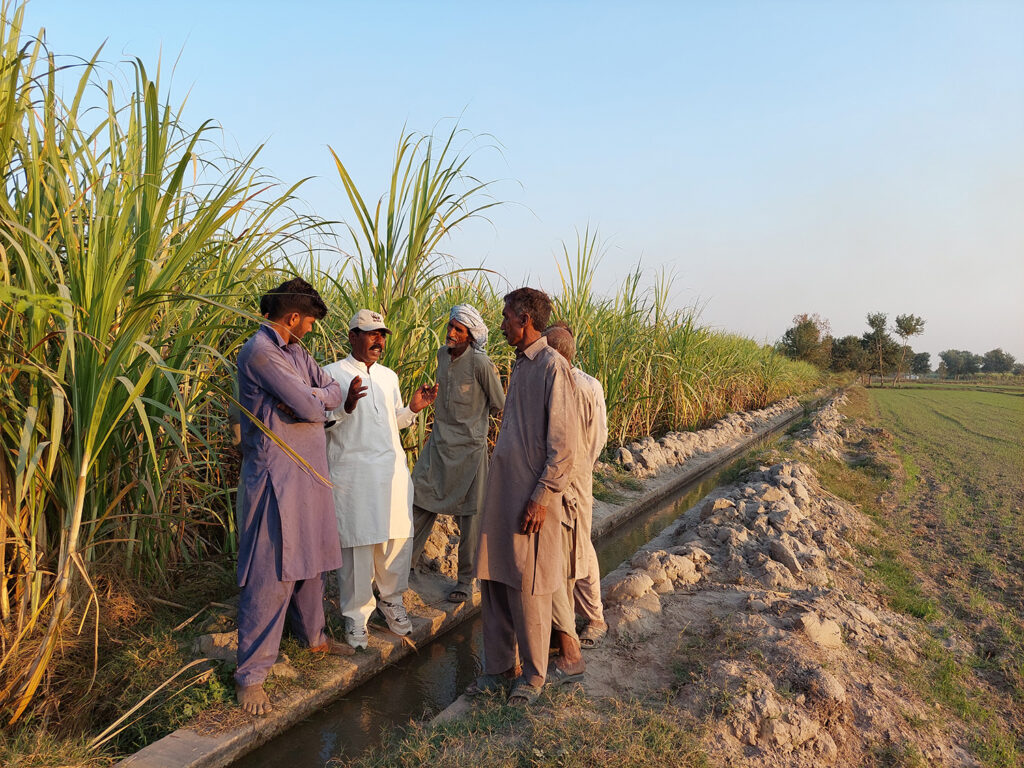
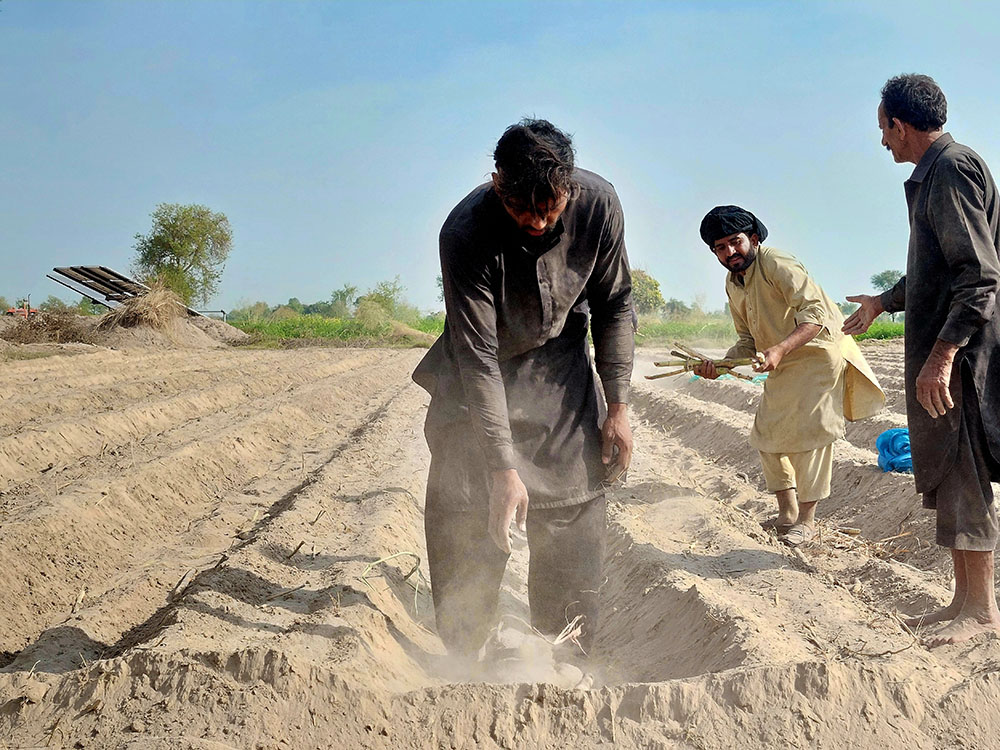
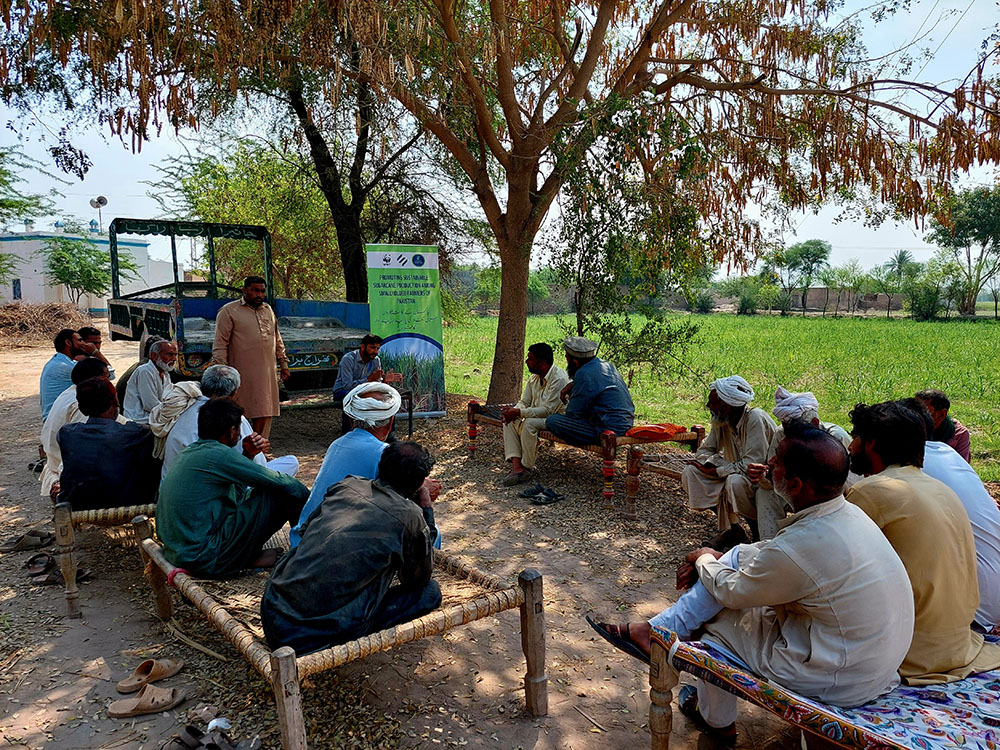
Project updates
Every six months, grantees of the Bonsucro Impact Fund have to submit a progress report. Here are some of the most recent updates about this project (August 2023):
- A baseline survey conducted among 200 of the 2,000 beneficiary farmers showed expected results, such as limited understanding and use of sustainable farming practices. It also revealed a much higher water usage than anticipated. The project plan has been adapted to incorporate more training on water use and water stewardship, as well as crop protection and nutrient management.
- The baseline survey was based on the BPS self-auditing tool with two additional questions on farmers’ existing knowledge. These survey questions will be repeated at the mid-point of the project for comparison.
- 105 farmer field schools have been established, with 2,100 farmers being trained on sustainable production practices through 176 training sessions. This is above the target for this project.
- The 126 farmers surveyed said their understanding of sustainable practices has improved (42% of farmers have understanding to some extent, 34% have a fair understanding, 18% have full understanding) from their self-reported zero understanding at baseline.
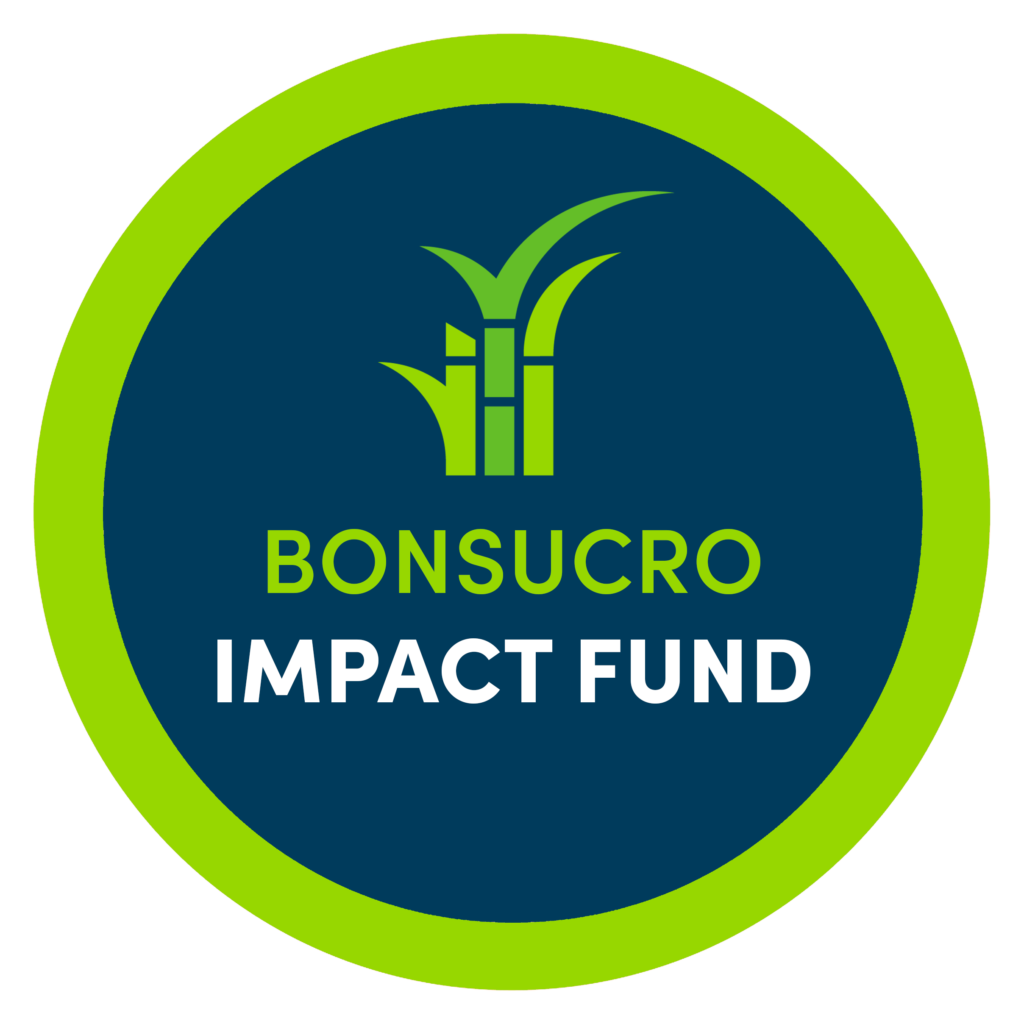
Bonsucro Impact Fund
The Bonsucro Impact Fund invests in impact projects that address critical sustainability challenges in the sugarcane sector.
The Bonsucro Impact Funds uses income from the sale of Credits through the Bonsucro Credit Trading Platform.
All trades are charged a transaction fee, around 50% of which is invested into the Bonsucro Impact Fund.
Learn more about the Fund and check for grants available here.
Bonsucro Credit Trading
By purchasing Bonsucro credits for sugarcane, ethanol, molasses and raw sugar, companies support impact projects on the ground through the Bonsucro Impact Fund.
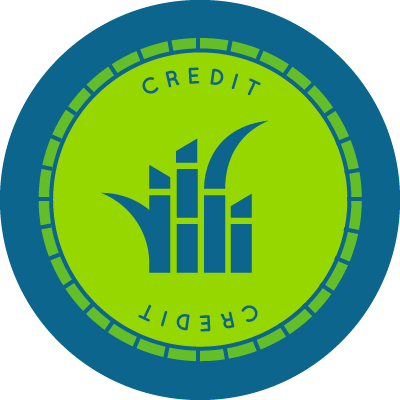
Sign up to our newsletter
Get the latest industry insights, and stories from all corners of the supply chain straight to your inbox.




